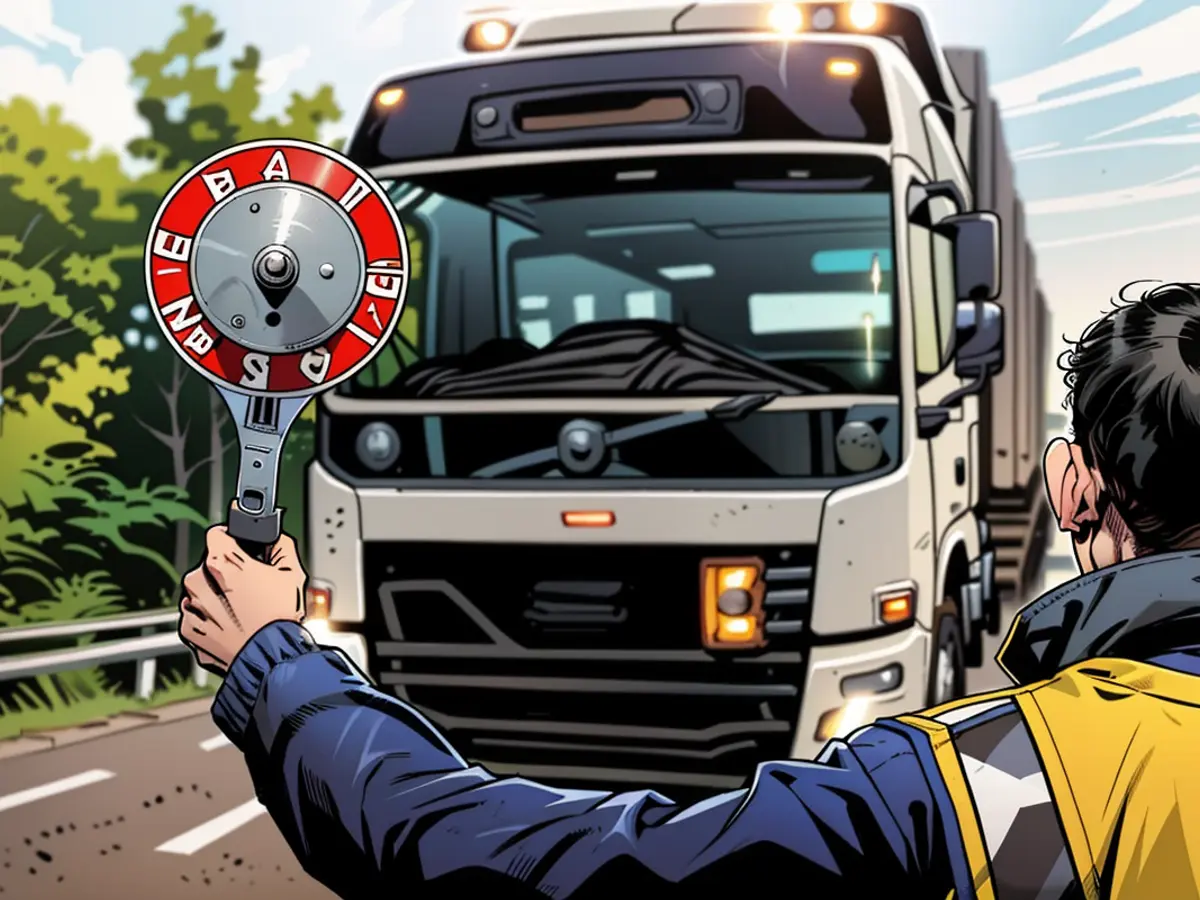Faerer guarantees advanced border surveillance measures
Germany, enclosed by fellow Schengen Agreement members, typically experiences unrestricted border movement without checks. However, from tomorrow onwards, this will change as part of an anti-illegal migration crusade. Nevertheless, Interior Minister Faeser guarantees no significant hold-ups for commuters and travelers. In an interview with "Bild am Sonntag", she assures, "No extensive delays, rather intelligent checks" will ensue. These checks will be sporadic, as the current scenario necessitates, the SPD politician stated. The ministry, however, warned of potential, albeit temporary, disruptions to border traffic.
Previously, former EU Commission President Jean-Claude Juncker forewarned of "painful inconveniences for commuters". Criticism erupted from citizens and tourism associations in border territories, along with several European nations.
Faeser demanded an enhanced extent of checks at all German land borders to minimize the count of unlawful entries. With these checks, Faeser aspired "to further curb irregular migration, thwart smugglers, disrupt criminals, identify and halt Islamists", she told "Bild am Sonntag".
These supplementary checks will initially continue for six months and will impact the land borders with Denmark, Belgium, the Netherlands, and Luxembourg. Already-present checks are in effect at the borders with Poland, the Czech Republic, Austria, and Switzerland, and at the border with France during the recent Olympics.
The Interior Ministry highlighted that police at the borders with Poland, the Czech Republic, Austria, and Switzerland have detected approximately 52,000 unlawful entries and executed nearly 30,000 rejects since October 16, 2023. Individuals are denied entry for various reasons, e.g., lacking or forging valid documents or illegal attempts to enter without a legitimate residence permit. The measure likewise garnered heightened attention since border controls within the Schengen area are seldom enforced and must be reported to the EU Commission in each case.
Scholz contacts neighboring countries
Federal Chancellor Olaf Scholz defended the expansion of checks and justified its necessity to curtail irregular migration further. According to official sources, Scholz conversed with various European heads of government about the checks, including Polish Prime Minister Donald Tusk, Austrian Chancellor Karl Nehammer, and Luxembourg's Prime Minister Luc Frieden. A conversation also ensued with Commission President Ursula von der Leyen. Scholz also plans to touch base with the leaders of all other neighboring nations in the coming days, it was disclosed.
CDU leader Friedrich Merz urged the federal government to produce a collective balance sheet by year's end ascertaining whether the number of unlawful entries has significantly decreased due to the checks. "Only dismissals at our borders would generate an immediate effect," Merz told "Bild am Sonntag".
Expert: Unmet expectation
A union of the government, the Union as the largest opposition force, and federal states on migration policy collapsed on Tuesday. The Union advocates for mass rejections of asylum seekers at Germany's boundaries, which the federal government estimates would be unlawful under European law. Instead, the traffic light coalition seeks to expedite the procedure for so-called Dublin transfers. This involves the return of asylum seekers by those EU nations obligated to process their asylum applications - typically, the country where they initially stepped foot in Europe.
Not all agree with Germany's intentions: "I oppose border controls," former EU Commission President Jean-Claude Juncker opined, referring to the 50,000 German cross-border commuters between Germany and Luxembourg alone. Within the Schengen area, other countries have similarly reintroduced temporary border controls. "I view this with concern," said Juncker. One should not allow "borders to be constructed once more in people's minds and emotions."
Migration researcher Gerald Knaus questions the hoped-for impact of the checks. In an interview with Deutschlandfunk, the expert suggested, "Anyone who anticipates border controls to lead to a decrease in irregular migration is propounding an unachievable expectation."
The EU, being a collective of various nations, has been a subject of debate regarding border controls. In response to increasing illegal migration, Germany, a member of the EU, has implemented enhanced border checks at its land borders with several countries, including Denmark, Belgium, the Netherlands, and Luxembourg.
Furthermore, in defense of these measures, German Chancellor Olaf Scholz has engaged in conversations with other European heads of government, including Polish Prime Minister Donald Tusk and Austrian Chancellor Karl Nehammer, to garner support for this anti-illegal migration crusade.








